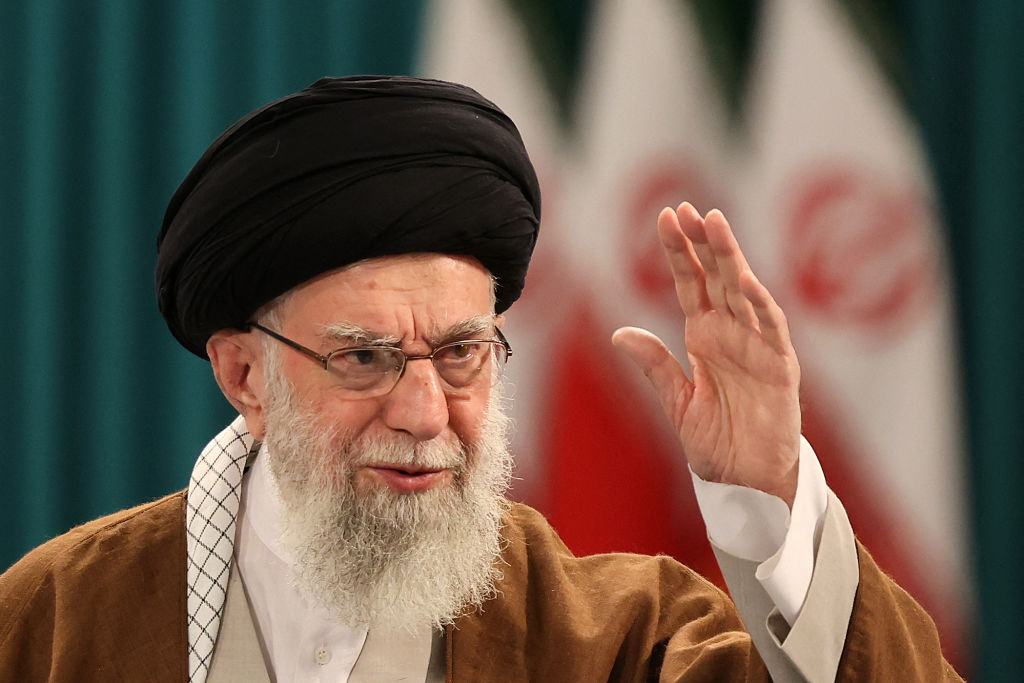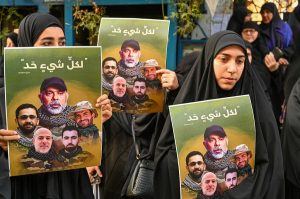Israel announced today that it has launched an unprecedented strike against regime targets in central Tehran, including the notorious Evin prison. Evin is infamous for holding foreign hostages and dual nationals, many of whom are detained by the regime as part of what human rights groups call “hostage diplomacy”. It has long been associated with arbitrary detention, torture, forced confessions and inhumane conditions, especially for political prisoners and those accused of spying or threatening national security.
The facility is run by the Islamic Republic’s Ministry of Intelligence and the Revolutionary Guards, serving as the central site for imprisoning those accused of anti-regime activity. Foreign and dual nationals are often arrested on vague charges such as “espionage” or “collaborating with hostile states”. In many cases, these charges are unsubstantiated and used as leverage in international negotiations, as was the case with British Iranian dual national Nazanin Zaghari-Ratcliffe. Conditions inside Evin are harsh, including solitary confinement, denial of legal access, threats against family members and psychological and physical abuse.
These strikes mark a significant widening of Israel’s military focus, from largely nuclear, ballistic missile and aerial defense targets, to those which represent the regime’s ideological and repressive core: its prison system, security headquarters, and propaganda symbols. It suggests a strategic intent not merely to deter or disrupt, but to help bring down the theocratic dictatorship that holds both its own people and foreign nationals in a state of constant fear. We should be clear-eyed and unambiguous: this is a welcome development. Israel is striking not only to defend itself but to undermine one of the most repressive systems on Earth. If Evin’s walls are breached and its victims walk free, that will be a day of liberation, for Iranians and for the foreign hostages whose only crime was to enter a country run by sadistic, ruthless hostage-takers.
Earlier in the week it was reported that French President Emmanuel Macron had called on the Iranian President Masoud Pezeshkian to release the two French citizens of Cécile Kohler and Jacques Paris, denouncing their “inhumane detention.” France, of course, is not alone. Citizens of the United States, United Kingdom, Sweden, Germany, Belgium, Austria, Canada and others have also been taken by the regime in Iran – journalists, activists, academics, tourists – all swept into a system of arbitrary detention that has become a defining feature of the Islamic theocracy’s foreign relations. Kohler, a literature teacher, and her partner Jacques Paris, a retired mathematics teacher, were arrested in 2022 while visiting Iran as tourists. Authorities loyal to the regime accused them of espionage and broadcast a forced confession video shortly after their arrest. The French government has consistently rejected the charges, insisting the pair were innocent travellers.
After the US struck Iran, Macron called for the most European of demands: “de-escalation and maximum restraint” and “a return to the diplomatic path”, but Israel’s latest approach might prove more productive. These detainees remain imprisoned, almost always with little to no contact, enduring conditions their families describe as torture. Their relatives have grown increasingly frustrated, warning that high-level diplomacy has failed to secure even basic humanitarian relief, but Macron’s demands have at least draw overdue attention back to the issue of foreign nationals imprisoned without due process.
Iran’s regime strategy of hostage-taking serves multiple aims. It provides leverage in negotiations. It intimidates dissidents and dual nationals abroad. And it signals to the world that the Islamic Republic does not recognise the basic norms of sovereignty, legality or human dignity. To speak of Iran under the Islamic regime as a state actor among others, merely difficult or obstinate, is to misunderstand it. It is an adversarial power that does not merely reject the rules-based international order, it seeks to undermine and replace it with a logic of fear and submission.
The stories are harrowing. Ahmad Reza Djalali, a Swedish-Iranian academic, sentenced to death on fabricated charges, kept in solitary confinement for years. Olivier Vandecasteele, a Belgian humanitarian, given 28 years following a sham trial. Nahid Taghavi, a German-Iranian women’s rights advocate, whose health is failing in prison. The mutilated corpse of Jamshid “Jimmy” Sharmahd was recently returned to his family after the German‑Iranian journalist and software engineer had been abducted by Islamic Republic agents from Dubai in July 2020, and reportedly held in Evin prison, enduring years of torture and the denial of medical care. He was murdered in October 2024, with neither the USA nor Germany having made appropriate efforts to free him and the other hostages.
The regime in Tehran does not act in isolation. It is emboldened by years of impunity. Western governments have, for too long, attempted to resolve these abductions quietly, bilaterally and often secretively. The impulse is understandable: protect the hostages, avoid provocation, preserve diplomacy. But it has failed. Indeed, it has encouraged more detentions. The Islamic regime in Iran has learned that the West will negotiate, will relent, will pay. And so it has continued.
The nuclear file is not separate from the human rights file. A regime that tortures academics and tourists cannot be trusted with uranium enrichment. A state that broadcasts forced confessions cannot be relied upon to honour international agreements. The Islamic Republic regime poses a strategic and moral threat not just to its neighbours, not just to the West, but to the world.
It is in this light that the boldness of Israel’s ongoing actions must be understood. Confronted with an existential threat, surrounded by proxies of the Islamic Republic, and under direct threat from a regime that openly declares its intent to destroy it, Israel has acted with clarity. The broader international community must now catch up, if not for Israel’s sake, for its own, and in defence of the principle that civilians are not bargaining chips.
The Islamic republic has proven itself time and again to be a hostile regime waging asymmetric war against the civilised world. The time for unity, for strength, and for moral clarity has come. The prisoners in Evin, in Kerman, in undisclosed cells across Iran, deserve nothing less.


























Leave a Reply